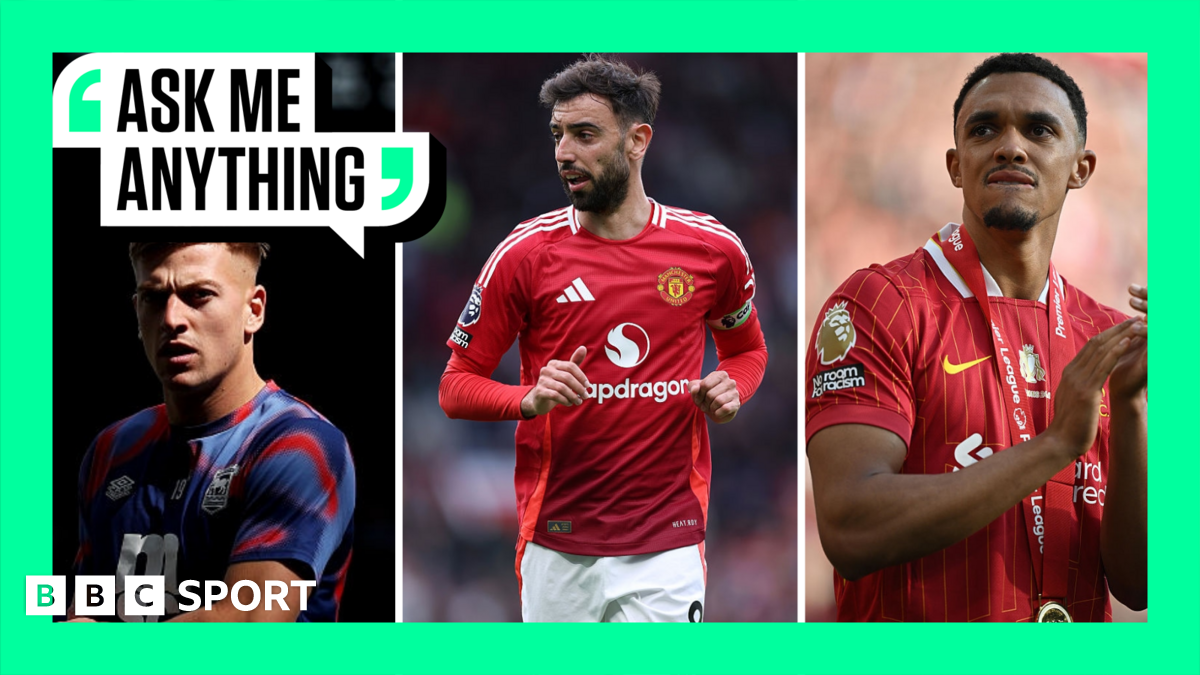Tasnim Chowdhury
BBC Sport journalist
Daniel Austin
BBC Sport senior journalist
The Ask Me Anything team have been going through your questions - and several were about the summer transfer window.
When does the transfer window open?
The summer 2025 transfer window is, unusually, split into two parts.
It will initially open on Sunday, 1 June and close nine days later. The early window allows teams participating in the Club World Cup the chance to sign players before the tournament begins.
The window will reopen on Monday, 16 June, before closing on Monday, 1 September at 19:00 BST for Premier League, EFL and Scottish Premiership clubs.
Get in touch
How do PSR and FFP work?
Uefa's Financial Fair Play (FFP) and the Premier League's Profit and Sustainability Rules (PSR) are financial regulations intended to make clubs sustainable.
FFP is designed to prevent clubs that compete in European competitions from not spending more than they earn, while PSR demands clubs operate within their financial means and avoid excessive losses.
Premier League clubs can lose up to £105m over a three-year period and may be deducted points if they go over that limit.
It has become common practice in football for clubs to amortise (spread out) the transfer fee they pay for any new signing.
For example, if a new player is signed for £80m on a four-year contract, amortisation means that fee is listed as £20m per year for four years in the accounts. Spreading costs that way allows clubs to abide by FFP and PSR rules more easily.
That could allow them to spend more money on new players in a single window, because as far the financial records show, the full cost of the transfer fees they agree to pay isn't counted until further down the line.
Youth players automatically have very low amortised values, because little or no transfer fee was paid for them in the first place. Whatever price they are then sold for can be counted as almost 'pure profit' in the accounts.
Chelsea - in particular - have used this rule to allow them to keep spending by selling academy prospects including Mason Mount, Conor Gallagher and Lewis Hall for fees.
What's the sporting director's role in transfers?
A club's sporting director will tend to have a long-term vision, while the head coach will be thinking more short term.
The sporting director should ensure potential signings fit in with the club's playing style and culture. They will do that through months of planning and meetings with the head coach and club owners, chair or chief executive.
The sporting director will work with the recruitment team to scout players and will be at heart of negotiations for a transfer - they will usually be responsible for contacting the selling club and player's representatives.
To manage continuity of transfers and signings, a sporting director tends to be at the club longer than first-team coaches and is usually responsible for planning.
How do transfer requests work?
There is no standardised, formal way in which players are obliged to submit transfer requests.
The most common method is for a player's agency to draft a legal document - including confirmation a player wishes to breach the terms of their employment, the reasons behind the request, and the player's signature - and send it to the sporting director, chairman or CEO of a club.
But transfer requests can also take other forms. For example, a player or somebody acting on their behalf may inform a manager at a training ground, could give an interview to the press, or might post on social media to make sure the wider football community is fully aware of what they want.
A club is under no obligation to accept any transfer request.
Submitting a transfer request can lead to significant financial penalties for a player. Formally asking to leave while employed by a club constitutes a breach of contract, and could mean a player is no longer entitled to contractual bonuses like signing-on fees and loyalty bonuses.
This article is the latest from BBC Sport's Ask Me Anything team. Thanks to Keith in Sussex and Farewell in South Africa for the questions!
What is Ask Me Anything?
Ask Me Anything is a service dedicated to answering your questions.
We want to reward your time by telling you things you do not know and reminding you of things you do.
The team will find out everything you need to know and be able to call upon a network of contacts including our experts and pundits.
We will be answering your questions from the heart of the BBC Sport newsroom, and going behind the scenes at some of the world's biggest sporting events.
Our coverage will span the BBC Sport website, app, social media and YouTube accounts, plus BBC TV and radio.




